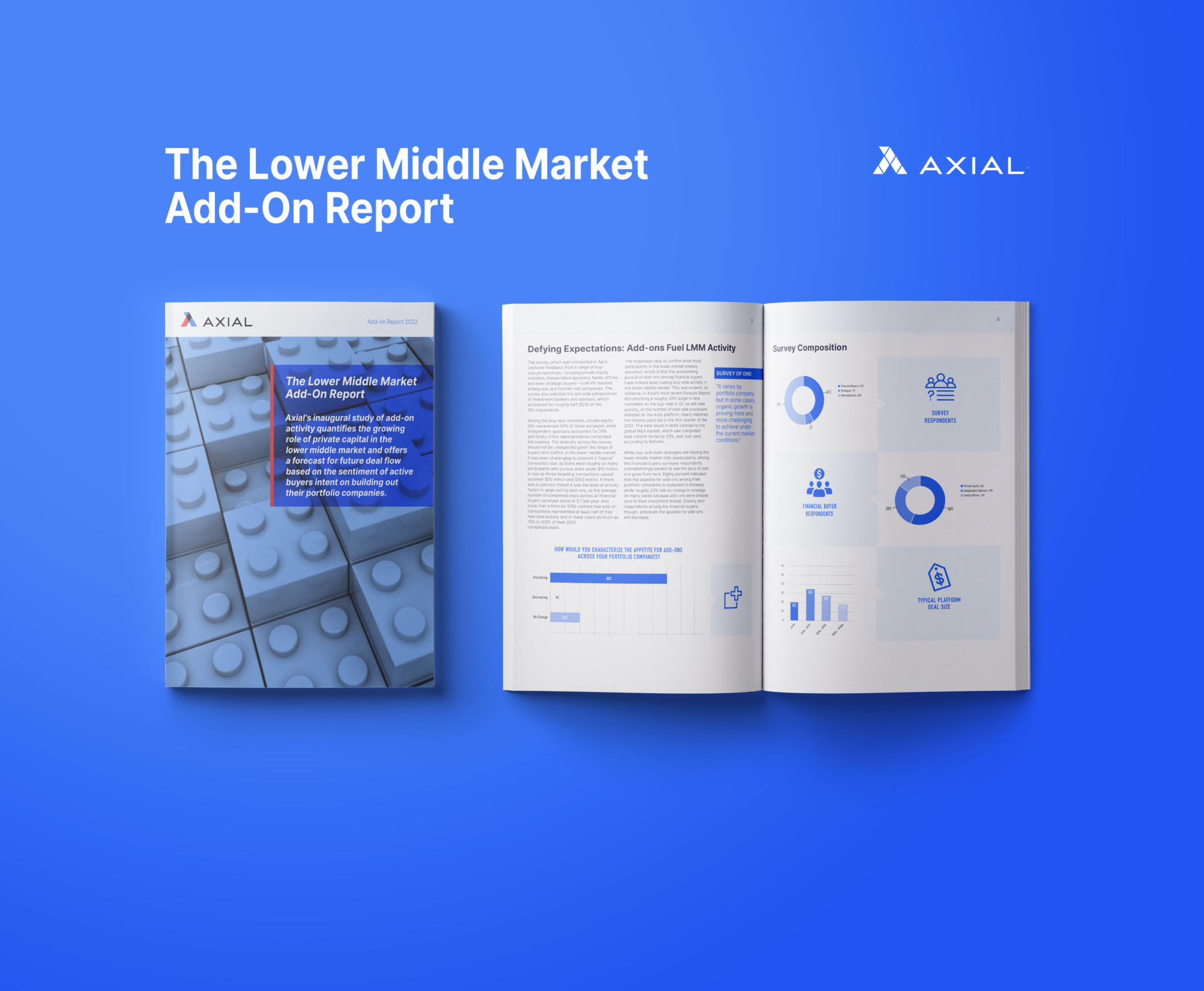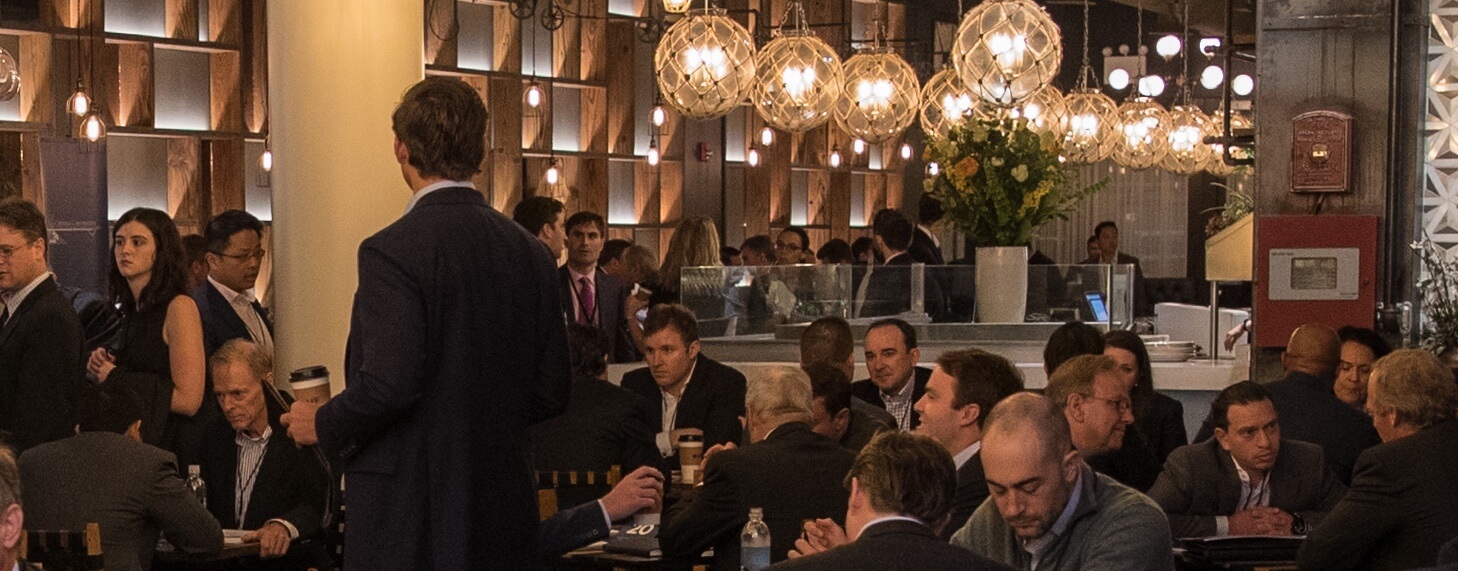
Introducing The Lower Middle Market Add-On Report
A survey of 150 deal professionals across the Axial network documents the extent to which financial sponsors have descended upon…
Tags
In the second part of our series on family offices, we spoke with Drew Tarlow, a Principal at Wildcat Capital Management.
Wildcat Capital Management was established in 2011 by Len Potter and David Bonderman to principally manage the personal investments of David Bonderman, co-founding partner of TPG Capital. We currently have AUM north of $2.5 billion. We consider ourselves an “institutional family office” – we hope to bring the same level of analysis and value-add to companies as traditional private equity but with the full flexibility of family office capital. All of the members of our original investment team have private equity backgrounds.
There are multiple teams internally, including a quantitative investments team that has a background in trading volatility and various macro instruments. I head up what we call our fundamental team, where we make investments ranging from venture capital to lower middle-market private equity.
Wildcat: Good question. We’ve spent a lot of time in 2017 in both traditional businesses that we believe are more immune from disruption by Internet or DTC (direct-to-consumer) business models and also in those very types of disruptive businesses. Our view is that there will be survivors in the old bricks and mortar businesses but that new business models will continue to take market share from many old businesses.
We often look for businesses where our capital is uniquely advantaged. We are flexible as to stage and can do everything from a complete startup to a full control buyout. We are also not burdened with an investment time horizon, so we can deploy capital over time and hold businesses for a very long period. We look for industries and partners where the flexibility of our capital can be beneficial to a company in a way that private equity can’t address. We don’t want to run businesses, but we strive to be value-added, hands-on partners for management teams. We pride ourselves on being good sounding boards and flexible and agile.
Wildcat: Generally, I’d say that it has been a terrific year for the firm. We had a good exit from a company called Kite Pharmaceuticals, which was initially a private investment but later became a public company and was sold to Gilead. Overall, the portfolio performed quite well, including Hubble Contacts, a direct-to-consumer contact lens company that we were involved with from the business planning stage. And in general, it was a year where we tried to be more creative, build investment platforms, and proactively look for opportunities rather than entering into a lot of competitive processes.
The positive of taking that approach is meeting terrific management teams with whom we can work closely and who know their industries better than we ever will. The negative of the approach is that it’s more difficult to get a deal done when you’re creating it.
Wildcat: We explored one industry that has not attracted any institutional capital yet, and we were out actually trying to find operating partners to build a platform in the industry. It will be a private equity business rather than a venture business in the sense that it has cash flow and real assets, but a little less traditional than trying to buy a company which has decided to auction itself off. In another case, we identified an industry we liked but didn’t have an active deal opportunity. We started attending conferences and getting to meet as many management teams as possible to try to find the right partner.
Wildcat: First, I think the market is frothy, and there’s a lot of liquidity. Funds, in particular, have raised a lot of cash and interest rates are low. As a result, investors are paying relatively high prices for businesses, which makes it more competitive to invest in high-quality companies. For family offices, I think you have seen a continued trend in family offices hiring smart investment professionals with institutional investing experience and trying to build the resources to make direct investments. That said, it’s still a niche of the buy side which will evolve meaningfully over the next 5-10 years.
Wildcat: Difficult question to answer. The market is somewhat directionless at the moment, and given that we have been in a positive economic cycle for an extended period one might expect some tempering of growth. But it’s also not clear if there’s any particular reason why growth should slow in the near term. All we can do as investment professionals are work hard to find the right investments and be hard working partners for our companies through good and bad economic cycles.
Wildcat: Creativity, hustle, and partnership. Creativity is coming up with new and often unique investment ideas. Hustle is getting out and getting to know an industry and its best management teams. Proactively finding the right angle to lead to an investment opportunity in a sector. And the partnership piece is the most critical part of our jobs — proving to potential businesses that we can be a value-added partner and not just passive capital.
Click here to download The Guide to Managing Your Online Presence +
